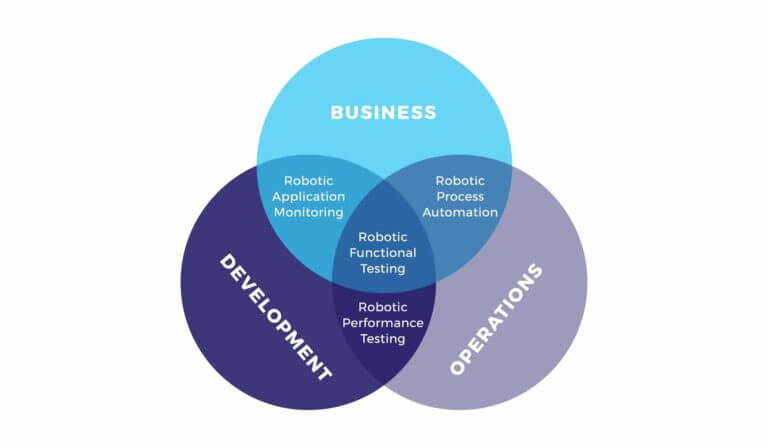When DevOps was introduced some 13 years ago, extending agile to operations created a seismic shift in the software development life cycle. Operations and development teams had to streamline their processes to enable agile and continuous deployments.
Moving forward 10 years, enter DevOps 2.0: BizDevOps. BizDevOps promotes integration of operations, development, and business in a single process that allows the improved level of coordination which is needed in the era of the agile enterprise.
Today, we are using “BizDevOps” to support a new definition: That which equally addresses business teams, development teams and operations teams as a whole. Let’s look at “Automation for BizDevOps” in both senses.
In both DevOps and BizDevOps, automation tools are essential for making the speed and agility possible. Performance testing, functional testing and monitoring tools are necessary along the entire software delivery chain to get the data and turnaround needed for an agile environment.
Enter today’s hot trend toward Robotic Process Automation (RPA) where digital software robots perform repetitive tasks across applications to improve business processes execution. Companies like UI Path, Blue Prism, and Automation Anywhere are potential leaders on this path and have raised huge capital toward this goal.
How does business process automation tie in with the BizDevOps cycle? At first glance, it may not seem correlated to the development cycle. But taking a step back, it becomes clear that application automation is an integral part of your customer experience. So it should not be an afterthought you delegate to the operations teams only. Instead, application automation should be treated with the same weight as the all the application artifacts being changed and tested on a continuous basis
As it becomes clear that automation is a pillar to any “BizDevOps” approach, the concept emerges of a single platform for Robotic Automation. Why don’t we fulfill the needs of business, development and operations with a single piece of technology? This not only provides significant savings on implementation and training costs, but it also bolsters the efficiency of the continuous delivery process by enabling seamless coordination between teams. Development teams would be automatically updated on the latest businesses processes for testing, and operations would be able to keep help desk current with monitoring the updated processes and avoid false failures. Conversely, business teams that are in the process of building new processes for RPA bots can take testing scripts that already are written and use them as a baseline for refining processes for automation.
Currently, only Automai Corporation has recognized this advantage of streamlining automation and offers a single Robotic Automation Platform to service the automation needs of BizDevOps. Automai delivers Robotic Process Automation to business teams, automated Performance Testing and Functional Testing to development teams and automated Application Monitoring to operations teams, all this based on one single platform. Maybe this is worth considering on your path to the fully agile enterprise?
